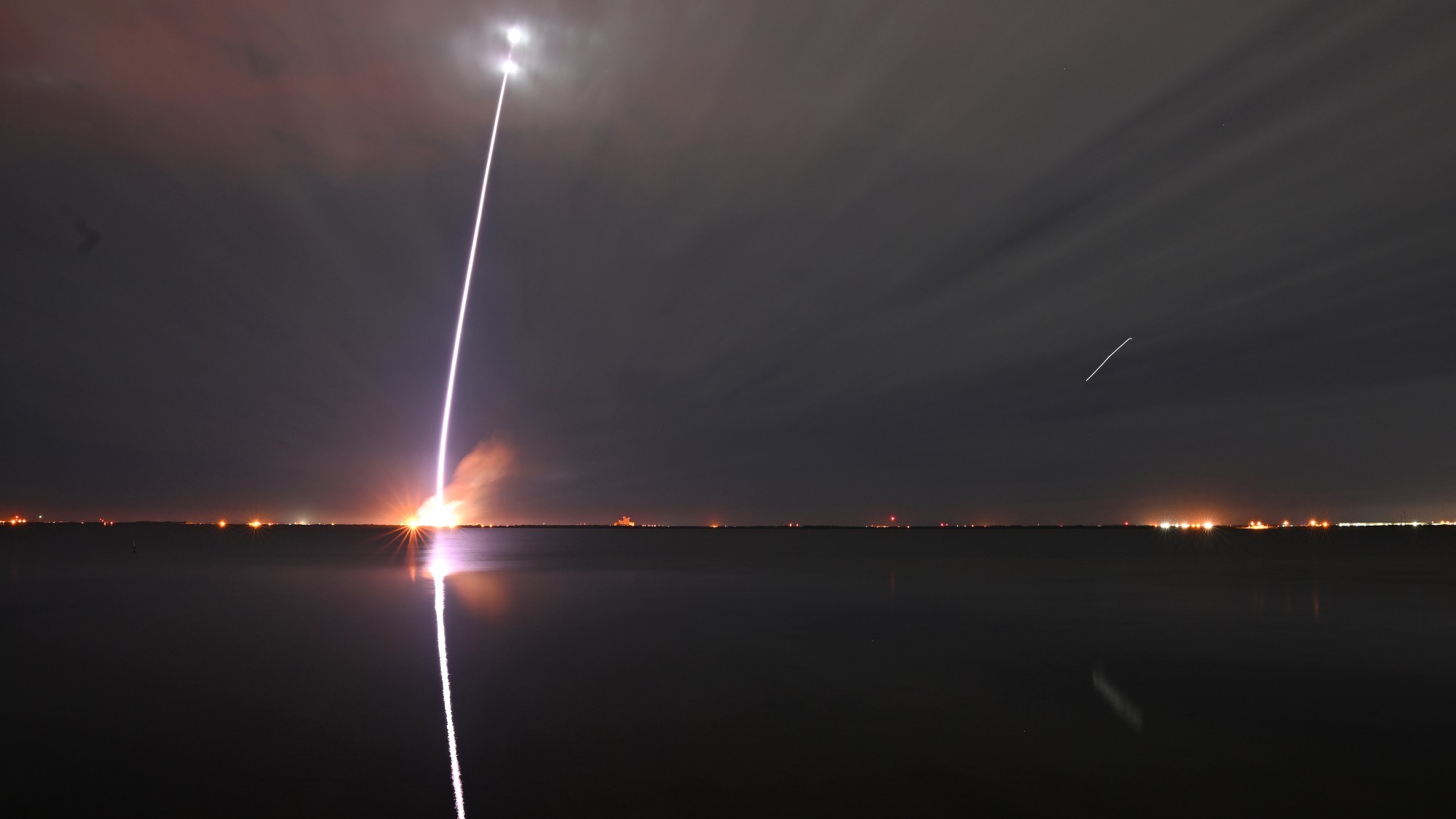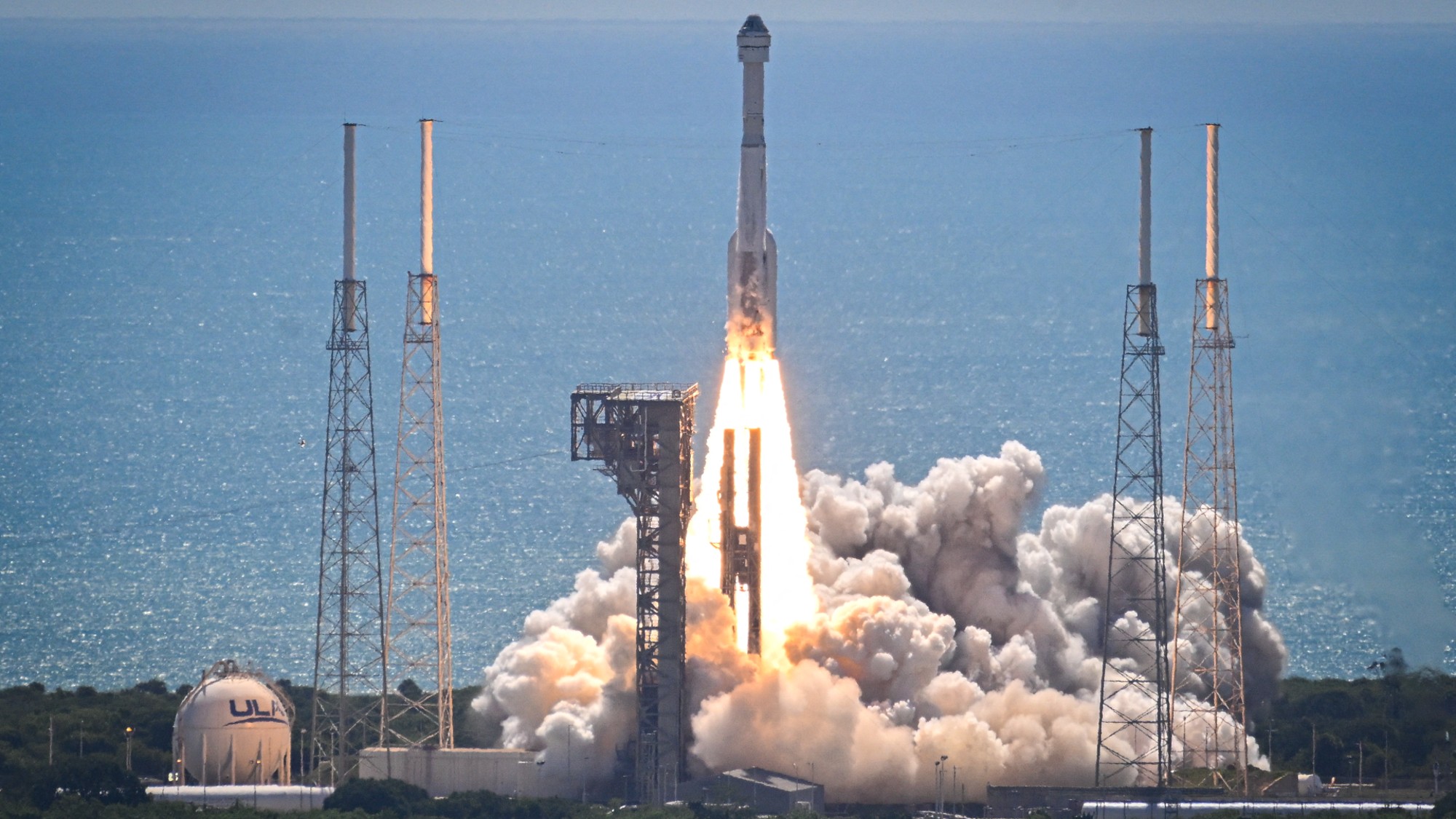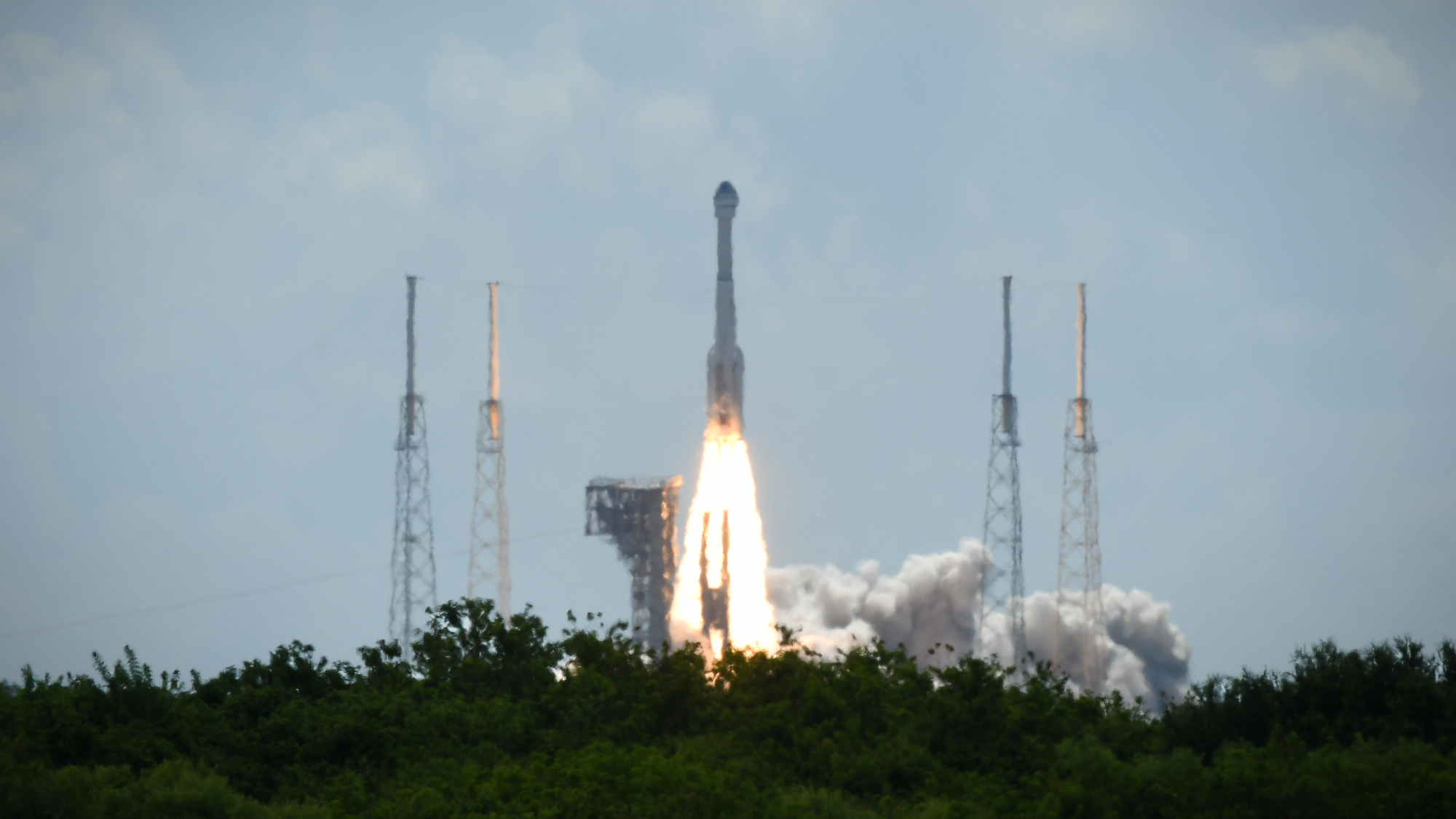SpaceX trials in-orbit broadband service
Starlink satellites should provide internet to remote communities
A free daily email with the biggest news stories of the day – and the best features from TheWeek.com
You are now subscribed
Your newsletter sign-up was successful
SpaceX has finally completed the delayed launch of a rocket carrying satellites capable of beaming wireless internet down to Earth from orbit.
The Falcon 9 rocket was due to lift off on 17 February, but additional checks at the Vandenberg Air Force Base launch site, in California, and poor weather conditions meant the mission was postponed until yesterday.
The two satellites on board, dubbed Tintin A and Tintin B, will trial the aerospace firm’s Starlink broadband service ahead of its expected roll-out in 2019, says Ars Technica.
The Week
Escape your echo chamber. Get the facts behind the news, plus analysis from multiple perspectives.

Sign up for The Week's Free Newsletters
From our morning news briefing to a weekly Good News Newsletter, get the best of The Week delivered directly to your inbox.
From our morning news briefing to a weekly Good News Newsletter, get the best of The Week delivered directly to your inbox.
The company’s “ultimate goal” is to provide wireless broadband worldwide, the website says, allowing even the most remote communities to access internet services.
If the test proves successful, the firm will continue to launch broadband satellites over the next five years, and aims to reach “full capacity with 4,425 satellites in 2024”, Ars Technica adds.
SpaceX co-founder Elon Musk revealed on Twitter that the two satellites would pass over Los Angeles on Friday morning, and would attempt to beam “hello world”.
“Don’t tell anyone, but the wifi password is ‘martians’,” Musk joked.
A free daily email with the biggest news stories of the day – and the best features from TheWeek.com
SpaceX is not the only firm aiming to beam broadband from the stars.
According to CNN, Sir Richard Branson’s Virgin Group and communications giant Qualcomm are backing OneWeb, a start-up that has also received approval from the US-based Federal Communications Commission (FCC) to launch internet satellites into orbit.
-
 Local elections 2026: where are they and who is expected to win?
Local elections 2026: where are they and who is expected to win?The Explainer Labour is braced for heavy losses and U-turn on postponing some council elections hasn’t helped the party’s prospects
-
 6 of the world’s most accessible destinations
6 of the world’s most accessible destinationsThe Week Recommends Experience all of Berlin, Singapore and Sydney
-
 How the FCC’s ‘equal time’ rule works
How the FCC’s ‘equal time’ rule worksIn the Spotlight The law is at the heart of the Colbert-CBS conflict
-
 Elon Musk’s pivot from Mars to the moon
Elon Musk’s pivot from Mars to the moonIn the Spotlight SpaceX shifts focus with IPO approaching
-
 Data centers could soon be orbiting in space
Data centers could soon be orbiting in spaceUnder the radar The AI revolution is going cosmic
-
 Another Starship blast sets back Musk's Mars hopes
Another Starship blast sets back Musk's Mars hopesSpeed Read Nobody was killed in the explosion, which occurred in south Texas
-
 Elon Musk's SpaceX has created a new city in Texas
Elon Musk's SpaceX has created a new city in TexasUnder The Radar Starbase is home to SpaceX's rocket launch site
-
 Test flight of orbital rocket from Europe explodes
Test flight of orbital rocket from Europe explodesSpeed Read Isar Aerospace conducted the first test flight of the Spectrum orbital rocket, which crashed after takeoff
-
 Jeff Bezos, Elon Musk and the billionaire space race
Jeff Bezos, Elon Musk and the billionaire space raceThe Explainer Tesla CEO and Amazon founder vie for dominance of satellite launch market and could influence Nasa plans to return to Moon
-
 Starliner: What went wrong?
Starliner: What went wrong?Today's Big Question Boeing spacecraft has had a 'long, difficult road'
-
 Boeing, SpaceX successfully test key rockets
Boeing, SpaceX successfully test key rocketsSpeed Read Boeing’s Starliner docked at the ISS and SpaceX completed its fourth test launch of its Starship spacecraft